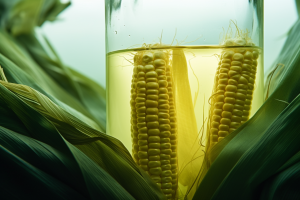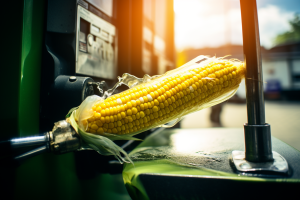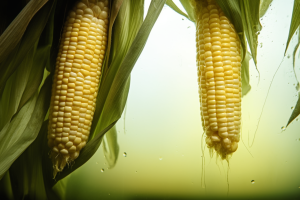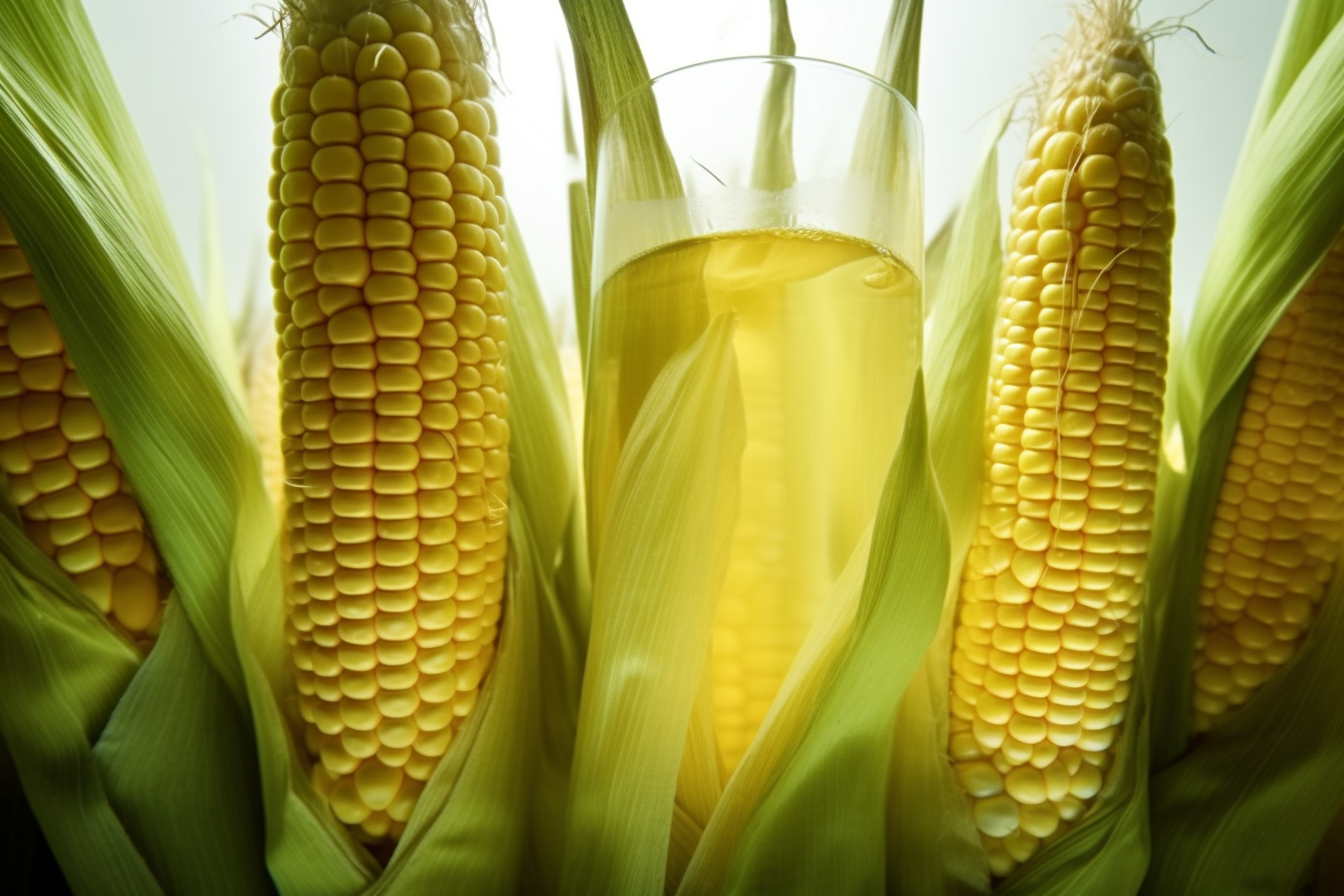
The Biden administration amplifies biofuel blending, signaling a shift in U.S. energy policy.
EPA 2023 Ethanol Verdict: Unveiling the New Biofuel Mandate
In a recent move, the Biden administration has amplified the volume of biofuels to be integrated into the U.S. fuel supply chain over the next three years. However, the decision to maintain the production figures for corn-based ethanol has sparked concerns among biofuel proponents and agricultural champions. For more news and updates on alternative energy policies, check out this page.
Details of the EPA 2023 Ethanol Verdict
The Environmental Protection Agency (EPA) has finalized a plan that mandates biofuel blending volumes of 20.94 billion gallons in 2023, 21.54 billion gallons in 2024, and 22.33 billion gallons in 2025. These figures, while an increase from previous years, earmark only 15 billion gallons for corn-based ethanol across the three-year span.
This decision has raised questions about the U.S.’s commitment to renewable energy sources and the potential environmental impact of such a strategy. To dive deeper into the topic of EPA’s decisions and their implications, follow this link.
Ethanol’s Economic Significance in the U.S.

Corn-based ethanol: A cornerstone of debate in the biofuel industry.
A significant portion of gasoline sold in the U.S. contains 10% ethanol. This biofuel is pivotal for the economic health of states like Iowa and Nebraska, situated in the heart of the Midwest. The production of ethanol provides jobs, supports local economies, and reduces the U.S.’s dependence on foreign oil. However, critics argue that the environmental cost of corn production, including water use and pesticide runoff, may offset some of the benefits of using ethanol as a fuel source. Understand the strategies being employed in the U.S. fuel industry to optimize outcomes, explore this link.
Enjoying our insights?
Subscribe to our newsletter to keep up with the latest industry trends and developments.
Stay InformedEPA 2023 Ethanol Verdict and Foreign Oil Dependence
EPA’s chief, Michael Regan, emphasized that this final rule aims to cut down reliance on overseas oil sources by a staggering 140,000 barrels daily. Moreover, it supports the sustained growth of biofuels, which emit fewer greenhouse gases compared to conventional gasoline or diesel. This move is in line with global trends to reduce carbon footprints and combat the adverse effects of climate change. Stay updated on the latest trends in the energy transition, check out this link.
The Broader Climate Perspective
“Ethanol and other renewable fuels are instrumental in diversifying our nation’s energy portfolio and battling climate change. They not only foster job creation but also bring economic advantages to communities nationwide,” Regan stated.
For additional insights into the challenges facing renewables, explore this page.
Industry Reactions to the EPA 2023 Ethanol Verdict

40% of U.S. corn output for ethanol: Efficiency or waste?
The biofuels sector expressed its dissatisfaction with the EPA’s latest figures, which are a step down from last year’s proposal. Emily Skor, the CEO of Growth Energy, an ethanol industry consortium, remarked,
“The EPA’s revised goals for traditional biofuels don’t align with Congress’s direction. This will inadvertently hinder progress towards the administration’s climate objectives.”
Stay abreast of the latest trends shaping politics, laws, and policies, click here.
The Push for Advanced Biofuels
Michael McAdams, who presides over the Advanced Biofuels Association, labeled the EPA’s strategy as a missed chance to champion and broaden the uptake of low-carbon advanced biofuels, such as algae-derived fuels and cellulosic ethanol. These advanced biofuels have the potential to significantly reduce carbon emissions and serve as a more sustainable alternative to traditional fuels. Explore our news of factors influencing growth in alternative fuels, visit this link.
Environmentalists Weigh In

Environmentalists weigh in: The future isn’t driven by corn.
Environmental factions also voiced their concerns. Dan Lashof, the U.S. director of the World Resources Institute, commented,
“The future isn’t driven by corn. Converting crops into fuel exacerbates the climate crisis and is an inefficient use of prime agricultural land.”
For more news on environmental perspectives on biofuels, check out this page.
The Road Ahead: Balancing Agriculture and Climate Goals
Approximately 40% of U.S. corn output is directed towards ethanol production. Lashof termed this as a colossal waste, advocating for climate-smart agricultural practices that prioritize food production, carbon storage, and biodiversity conservation. As the debate continues, it’s clear that a balanced approach, considering both economic and environmental factors, will be essential for the future of U.S. energy policy. To dive deeper into the topic of agriculture and climate goals, follow this link.
Key Points from the EPA 2023 Ethanol Verdict
- The Biden administration increased biofuel blending volumes for the next three years.
- Corn-based ethanol production figures remain unchanged, causing concerns among biofuel and agricultural advocates.
- EPA’s plan sets biofuel blending volumes at 20.94 billion gallons in 2023, 21.54 billion gallons in 2024, and 22.33 billion gallons in 2025.
- 10% of gasoline sold in the U.S. contains ethanol, crucial for states like Iowa and Nebraska.
- The new rule aims to reduce foreign oil dependence by up to 140,000 barrels daily.
- Renewable fuels are seen as essential for diversifying the U.S. energy mix and fighting climate change.
- Industry reactions to the EPA’s decision have been mixed, with some expressing dissatisfaction.
- Environmentalists express concerns over the continued push for ethanol and other biofuels.
- Advanced biofuels like algae-derived fuels and cellulosic ethanol are seen as more sustainable alternatives.
- 40% of U.S. corn output is used for ethanol production, leading to debates on its efficiency and sustainability.
Dig Deeper into Related Topics
- For insights on the broader spectrum of biofuels, explore this page.
- Delve into the impact of emissions on the environment and how biofuels play a role, click here.
- Stay updated on the latest regulations impacting the biofuel industry, check out this link.
- Understand the significance of greenhouse gases (GHG) in the context of biofuels, visit this link.
- Explore the intricacies of ethanol as a key player in the renewable energy sector, follow this link.
Explore External Resources and Insights
- Energy Information Administration (EIA): Learn more about their mission, history, and the areas they cover.
- National Renewable Energy Laboratory (NREL): Find information on their services, history, and commitment to innovation.
- American Coalition for Ethanol (ACE): Understand the strategies being employed in the U.S. fuel industry.
- International Energy Agency (IEA): Stay updated on the latest trends in the energy transition.
- Renewable Fuels Association (RFA): Delve into the intricacies of renewable fuels and their impact on the environment.
- U.S. Department of Energy: Find information on their services, history, and commitment to innovation.
- American Fuel & Petrochemical Manufacturers: Understand the regulations and laws in the specific field.
- World Resources Institute: Delve into extensive research on renewables and the global energy landscape.




















